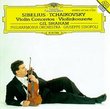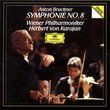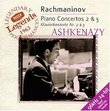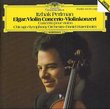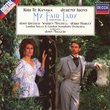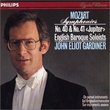| All Artists: Richard [Classical] Wagner, Daniel Barenboim, Bayreuth Festival Orchestra, Anne Evans, Annette Küttenbaum, Birgitta Svenden, Bodo Brinkmann, Eva Johansson, Eva-Maria Bundschuh, Graham Clark, Gunter Von Kannen, Hebe Dijkstra, Helmut Pampuch, Hilde Leidland, Hitomi Katagiri, Jane Turner, John Tomlinson, Kurt Schreibmayer, Linda Finnie, Matthias Holle Title: Wagner: Der Ring des Nibelungen [Box Set] Members Wishing: 0 Total Copies: 0 Label: Warner Classics Original Release Date: 1/1/2005 Re-Release Date: 11/8/2005 Album Type: Box set Genre: Classical Styles: Opera & Classical Vocal, Historical Periods, Modern, 20th, & 21st Century, Symphonies Number of Discs: 15 SwapaCD Credits: 15 UPC: 825646209125 |
Search - Richard [Classical] Wagner, Daniel Barenboim, Bayreuth Festival Orchestra :: Wagner: Der Ring des Nibelungen [Box Set]
![Wagner: Der Ring des Nibelungen [Box Set]](https://nationalbookswap.com/cd//l/26/2026/6132026.jpg) | Richard [Classical] Wagner, Daniel Barenboim, Bayreuth Festival Orchestra Wagner: Der Ring des Nibelungen [Box Set] Genre: Classical
The production of a new Ring at the Bayreuth Festival is an event that takes place every six years. Bayreuth recordings of the complete cycle are rare; this is only the third official audio recording and the second filmed ... more » |
Larger Image |
CD DetailsSynopsis
Album Description The production of a new Ring at the Bayreuth Festival is an event that takes place every six years. Bayreuth recordings of the complete cycle are rare; this is only the third official audio recording and the second filmed version. The Kupfer/Barenboim Ring was performed over a five-year period and recorded at the conclusion when the "Bayreuth Workshop" had raised "the quality of the performance to an almost unsurpassable level" (Der Tagesspiegel). Similarly Requested CDs
|
CD ReviewsNIBELUNGEN "BEST BUY" F. P. Walter | Albuquerque, NM | 02/04/2007 (5 out of 5 stars) "Here's a staggering bargain. These much-praised Bayreuth performances have been available on Teldec since 1994; now Warner has reissued them in a single box and they're an irresistible value: 1/2 the cost, 1/3 the shelf space, still accompanied by 4 deluxe booklets (containing complete German librettos, William Mann's English translations, essays, interviews, performance photos, and 100+ leitmotifs in the margins), plus there's a bonus DVD with generous excerpts from the Unitel video. Rival sets with comparable amenities (Karajan, Solti, Goodall, Keilberth) sell for 2-3 times as much. Budget-priced competitors (the admirable Janowski set, the more variable traversals of Boehm, Levine, Haitink, and Sawallisch) offer only meager pamphlets with plot summaries. ENGINEERING Unitel filmed this production during off hours at the 1991-92 Bayreuth festivals - the full staging with no audience, performances featuring live-event energy under controlled conditions. The digital stereo is the lushest I've enjoyed on any Ring recording: there's real room sound, immediacy, and three-dimensionality (but a shade more depth and airiness in '91 - compare the timpani figures in the Todesverkundigung and Siegfried's death scene). Stage noises are mostly unobtrusive: occasional faint shufflings, Hunding banging assorted props in Walkuere, otherwise comparatively few distractions. CONDUCTOR & ORCHESTRA These CDs furnish some of the most sumptuous instrumental and choral work you'll hear on ANY Wagner recording. Furtwaengler may be one of his deities, but here Barenboim is the master colorist, closer to Karajan, even to Stokowski. At Bruennhilde's awakening the strings are creamy; launching Goetterdaemmerung Act 3, the brass have a cushioned radiance. More than any recent competitor, Barenboim is supple and specific from beat to beat, turning up subtleties heard nowhere else. In Rhinegold sc. 2 where the gods grow old: the strings sound numb, drained, and fragile. Or Fasolt's murder: an ugly surprise, the curse motive in the brass icy and vibratoless. Or the woodwind asides throughout Siegfried Act 1: Mozartean in their mischief. Or the fatal turning point at "In kampfe nicht": while Bruennhilde teeters on the edge of the pit, the whole orchestra holds its breath. As for the big showpieces - Rheingold's coda, the valkyrie ride, the Siegfried Act 3 prelude - they're breathtakingly powerful yet deft and transparent. In short, there's no more illuminating statement of this vast music on disk. CAST The production introduced an all-new, prime-of-life cast, and for continuous listenability Barenboim's lineup rivals even Janowski's. With his huge, dark, rolling sound, Tomlinson is a stupendous Wotan, every inch the fearsome warlord of myth. Yes, he's a true bass and his high Fs are the end of the line, but he's a consummate theater animal, luxuriant in the "Abendlich strahlt" and Farewell, hypnotic with his big interior monologue, sly and amusing in his Wanderer persona; unquestionably this is a major portrayal. As Bruennhilde, Evans sounds young, sensitive, and technically impeccable - dead-center intonation, effortless slurs in the war cry, consistently lovely tone, and a glowing top that easily rides the orchestra. Her caliber is light for the role, but in the long-lined lyric passages she yields to nobody: "War es so schmaehlich" and "Ewig war ich" are as poised and poignant as I've heard them. As lead tenor, Jerusalem's adroit musicianship, vivid declamation, and burnished tone are a further pleasure, and he deserves an award for playing his reed-pipe scene in earnest rather than for laughs - Siegfried's loneliness and befuddlement become sincerely touching. True, his voice wearies during the wooing sequence, but he's on form for all of Goetterdaemmerung. Also his Volsung parents are largely an attractive pair: Elming's tenor is fresh and affecting, Secunde has a sultry soprano, and along with Hoelle's ferocious Hunding, they do gripping work in Walkuere Act 1. Hoelle's Fasolt is better natured but just as granitic; in fact the low voices here are close to superb: Kang is insidious as Fafner and Hagen - a fine-grained, well-knit instrument from top to bottom. As for Alberich, von Kannen is positively virtuosic: his sound isn't plush, but it's firm and in charge over both octaves, he sells the text with immense skill, and the curse is white-hot. Only Brinkmann (Gunther) disappoints, a good baritone behaving badly - attractive in his ariosos, pinched and strained when he tries to get dramatic. The rest are competitive. Clark's reedy tenor doesn't keep his Loge and Mime from being flamboyantly entertaining. Bundschuh's dusky timbre suggests a forty-something Gutrune, but she's decent listening. Barenboim's other women are all capable: Meier's Waltraute boasts crisp diction, compact tone, and flawless tuning, Svenden's Erda is similarly alert and appealing, Finnie's a high-energy Fricka with potent top notes. Since these ladies double the bit parts, we also get world-class teams of norns, valkyries, and rhinemaidens. VERDICT In sum, the total achievement here is formidable - unsurpassed engineering, top-drawer singing, exquisite orchestral playing, uniquely evocative conducting ... and lavish libretto booklets. Verdict: the Ring with the most bang for your buck. " Bowled over by Barenboim - Exhilarating beauty and dramatic Pater Ecstaticus | Norway | 08/26/2006 (5 out of 5 stars) "Over some years now I have been slowly discovering the daunting world that is Der Ring des Nibelungen, beginning - indeed - with Das Rheingold. I came to Wagner's Ring des Nibelungen completely fresh and unknowing, at first (probably) only having ever heard some 'bleeding chunks' of music from the operas (actually, my first real 'confrontation' with music from the 'Ring' was the gorgeous Erato album with Daniel Barenboim conducting the Chicago Symphony Orchestra, which I love, so that probably influenced my expectations about this music ...), and slowly heading on from listening to just the bits and parts I liked best - only casually wandering from one opera to another without knowing the whole intricate and complex poem/text/libretto - to listening to the acts more and more 'from beginning to end', slowly getting a closer grasp of the complex and convoluted (musical) storyline ... In fact, my sympathy, appreciation, affection and ultimately love for Der Ring des Nibelungen in general is in fact directly related to my love and appreciation for the 'Barenboim Ring', recorded in 1991 (Das Rheingold & Gotterdammerung) and 1992 (Die Walkure & Siegfried). With me, things as big and complex as the 'Ring' have to take time to grow on me, and the Barenboim Ring has captivated me from the start. Why I especially love the 'Barenboim Ring' has much to do with the singing, but more about that a little later. First a word or two about maybe the greatest 'stars of the show' here: conductor and orchestra ... ORCHESTRA AND CONDUCTOR. From what I have read, Daniel Barenboim seems to be becoming accepted among the ranks of the truly great Wagner conductors. It is of course also a matter of taste what approach one loves best in this music, but anyhow, aside from any 'accepted views', I have just always thought his Wagner the best. Just a matter of taste, indeed. To me, maestro Barenboim makes the music sound approprately massive and stately, but at the same time does he somehow maintain (how truly special!) an orchestral sound that is somehow crisply articulated, fresh and transparent, but resplendent with saturated color. As a complete musical 'illiterate' (I can't read music) I don't have a grasp of the musical 'reasoning' that undoubtably must lie behind maestro Barenboim's approach, but to me it all 'feels' just right and in complete harmony. A grand but clear-headed vision. A Parthenon or a Pantheon in music. I don't know, but it may also have to do with the (custom built ;-) Bayreuther Festspielhaus' superbly appropriate acoustics, causing a kind of nicely rounded, resounding but polished sound. Also, maestro Barenboim's tempi are generally exactly right for my own taste: never too fast (why do some people find his tempi too slow?) but always 'charged' with the right amount of dramatic tension. (But then again, I can't read music, so how would I know what would be the 'right' tempo? Oh, well ...) A clear-headed, but at the same time sweeping, grand vision of Wagner's music that does not revel in the music for its own sake, but above all things lets the music speak as a purely dramatic narrative to underline and focus on the drama that is going on on stage, with some of the most beautiful and at the same time dramatic singers I ever heard. The orchestra must also, in a sense, be able to 'speak for itself' in this music, and indeed it does so here, as eloquently as one could ever wish, I believe, and sometimes so enthousiastically, that voices are slightly drowned out, even, by its sheer power in climaxes :-) THE SINGERS. Often, emotions color my view of what I see and hear on certain moments. It's just how (and who) I am. And also, matters of personal taste come 'in the way'. I will not try to apologize for either ;-) But I will try to describe as clearly as I am able - however lacking and personally biased the end result may be - what I find so wonderful about this recorded performance of Der Ring des Nibelungen. Well, most of the singers are to my ears simply the best for their parts, utterly convincing, and often very moving. All of the 'main characters' are singers that I like or indeed love. We have, among many others, the towering talents of the excellent actor-singer Graham Clark (Mime), the energetic and heroic Siegfried by Siegfried Jerusalem, the enormously expressive, deeply resounding, deeply emotional Wotan by John Tomlinson, and we have the beautifully humane and warmly sympathetic Brunnhilde by Anne Evans. I truly adore Anne Evans' sweet but intelligent Brunnhilde. Her singing is engagingly sympathetic and completely captivating. In climaxes her voice really soars (for example the 'immolation scene'), and she never sounds strained, but she is I think at her best especially when allowed to really show all her nuanced beauty and color during softer passages like Brunnhilde's 'duets' with Wotan or Siegmund (take for example "Siegmund! sieh auf mich!"). I am very fond of Siegfried Jerusalem's Siegfried, and singing together with Anne Evans' Brunnhilde in Act III of Siegfried and Act I of Gotterdammerung, they sound like the true 'dream-pair' to me, reaching - in 'threesome' with the orchestra - highest states of harmony and ecstacy. Also, the 'duets' of Wotan and Brunnhilde in Die Walkure are powerful, but at the same time deeply emotionally engaged. (Seeing them together on the DVD's certainly adds to the experience!) Furthermore, I very much enjoy Linda Finnie's full-voiced, bitingly aggressive Fricka (just great in her emotional confrontation with Wotan in Act II of Die Walkure) and Birgitta Svenden's resounding and melancholy Erda ... AS A SIDE NOTE. Anyone who loves this specific audio-only version of Der Ring des Nibelungen, but has never before seen it (like I myself until recently), should also try the magnificent DVD's of these operas. I for one was truly enraptured, at last also being able to SEE all of the artists that I have come to love, singing (and acting) together within this flabbergastingly evocative stage design! The design is often quite bare, with completely dark background (indeed a feeling of a 'road into nowhere'), which causes, with this particular viewer at least, a sense of timelesness, puzzlement and even of mystery(!), which IMHO is quite appropriate for these larger-than-life operas, the abstractness of the design leaving a lot to your imagination and making them feel more timeless or 'pure', above and beyond any 'Zeitgeist', allowing the listener to focus more on their essential ideas and (inter-personal) emotions. Talking about emotions, what an enormous 'bonus' to see for example John Tomlinson sing/act his part! His expressive acting does add even more depth to his already deeply moving, highly charged singing. Now that I am finally also able to see this 'Ring' on DVD, it really IMHO enhances the experience of listening to 'just' this audio-only version, which to me is also a 'complete and full' experience in itself, using a bit of imagination (but then again, how much imagination does one need with this great music, so gorgeously performed?), being able to visualize with the mind's eye the close interaction between Wotan, Brunnhilde, Siegfried, et al. THE RECORDED SOUND. Just a few comments about the sound on these CD's to end this review. I think it is the best ever for this format (and for as far as I have ever heard). It really fills up the whole aural stage lengthwise and sideways! The effect is as if you were sitting front row seat, I guess. Every orchestral nuance and inflection is brilliantly and sumptuously captured and reproduced on CD. The recorded sound has always been so deep, sonorous and full as to really at some moments take your breath away, especially in the way that the singers' voices are clearly defined (almost three-dimensionally) within the acoustic space (the depth of the Bayreuth stage is almost palpable). But have they maybe remastered it? It seems to me that the sound on this re-issue is even clearer and finer than the original 1993 Teldec issue, with the acoustics of the Bayreuth theatre almost palpable, enhancing the characteristicly sonorous sound of the Bayreuther Festspielorchester. It is as if orchestral textures are even more velvety and clear and finely balanced. The singers seem to be even more in focus as well. (This also means that we are able to hear a little bit more of the whispering of the prompter in Gotterdammerung, which for some could be a distraction, I can imagine.) Also, I personally think that it is a blessing that this is a 'studio'-recording, so that the sense of mystery (and 'suspension of disbelief') is never broken by intruding audience noises. This I find especially necessary during the softer passages and intense dialogues between for example Brunnhilde & Siegmund and Wotan & Brunnhilde ... All in all, a magnificent set, this 'Barenboim Ring' - truly a musical milestone - and truly indispensable (beside the likewise indispensible DVD's)! For better or worse, I have really fallen in love with this 'Ring', mostly for the gorgeous (exquisitely recorded) orchestral sound under Daniel Barenboim and the magnificent leading roles. And now, last but not least, you can have the whole 'Barenboim Ring' on 14 CD's (+ bonus DVD with highlights) for the price of no more than about 4! (Postscriptum: the customer image I added is taken from the DVD of Siegfried, and not from the bonus DVD in this set.)" Wagner for fans of the music Waldweben | United States | 04/11/2006 (5 out of 5 stars) "This CD set is excellent musically and vocally. It is a live Bayreuth recording from 1991/92. It was also filmed, a bonus 59 min DVD is included with excerpts from all four operas. If you are brainwashed by the Solti fans or old recordings from the 50's you might say no one can match the singers of that "golden" time. But if you want to hear Wagners music as he intended it to be heard THIS IS IT! Every detail is audible, yes, there are some stage noises here and there but that is to be expected. For me Barenboim's tempi are just about perfect, not slow like "Knappertsbusch".
The singers are as good as you will find for 91/92, Tomlinson's Wotan is the equal of Hotter in my view, Anne Evans' Brunhilde is more subdued when compared to Nilsson or Varney but not in a negative way, her tone is more beautiful and she doesn't need to scream to make her points, her voice is clear and shows great understanding of the text. Siegfried Jerusalem as Siegfried may not be the equal of Windgassen then again who is? But he is very good indeed. Waltraud Meier is perfect as Waltraute. But the real star of this set is Barenboim and the Bayreuth orchestra!They make Wagners music sound like it should with the full range of sound in excellent clear stereo, one example is the opening storm section of Die Walkure is just awesome in it's power and beauty. " |

 Track Listings (20) - Disc #1
Track Listings (20) - Disc #1
